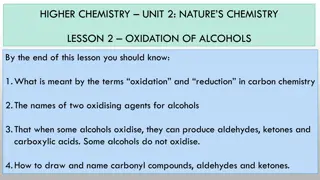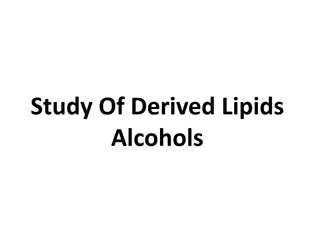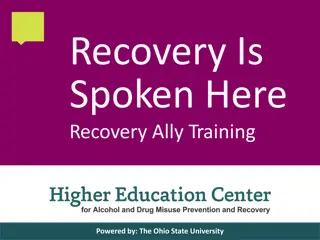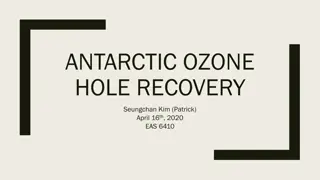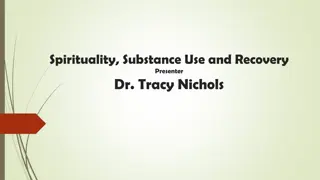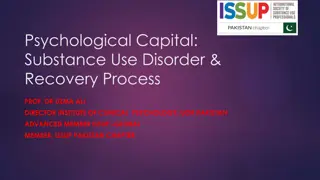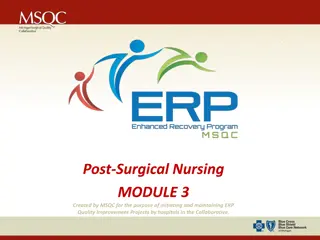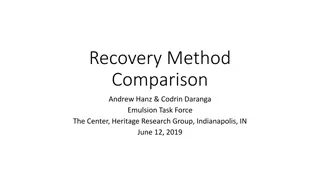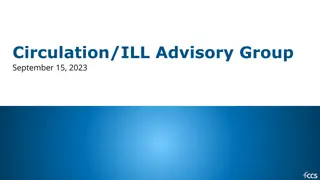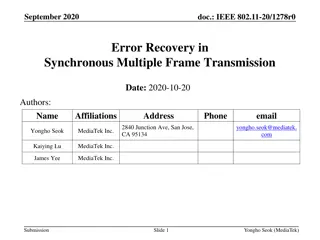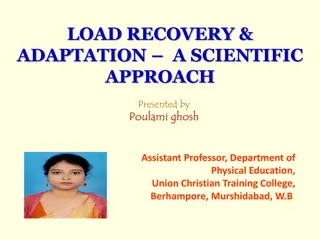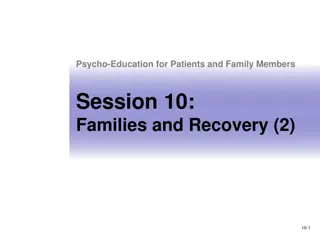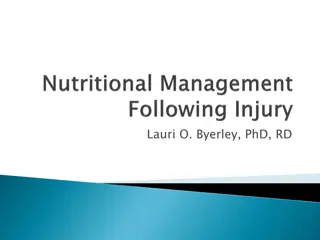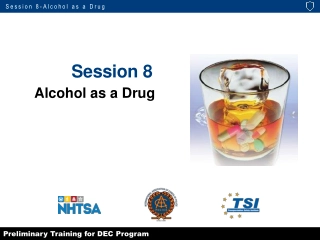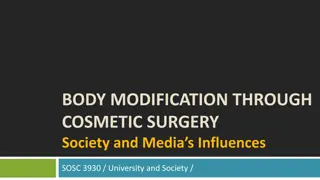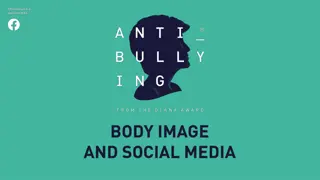Understanding Alcohol's Impact on the Body and Recovery Process
Alcohol disrupts brain chemical balance, leading to dependence, withdrawal symptoms, and potential life-threatening conditions like delirium tremens. Long-term alcohol consumption can severely damage various body systems. This session provides insights on the effects of alcohol on physical and mental health, emphasizing the importance of recovery and support.
Download Presentation

Please find below an Image/Link to download the presentation.
The content on the website is provided AS IS for your information and personal use only. It may not be sold, licensed, or shared on other websites without obtaining consent from the author. Download presentation by click this link. If you encounter any issues during the download, it is possible that the publisher has removed the file from their server.
E N D
Presentation Transcript
Psycho-Education for Patients and Family Members Session 3: Alcohol and Recovery (1) 3-1
Alcohol in the Brain Alcohol upsets a delicate balance between chemical systems that stimulate and chemical systems that inhibit functions of the brain and body. 3-2
Adaptation Adaptation Dependence Absence Withdrawal Symptoms 3-3
Withdrawal Symptoms Seizures Tremors Nausea Auditory or visual hallucinations Insomnia Agitation Confusion 3-4
Delirium Tremens Rapid heart rate Increased body temperature Tremors Loss of ability to control muscle movement Increased blood pressure Abnormally fast breathing Sweating Altered mental status Hallucinations Cardiovascular collapse and death 3-5
Incidence by Gender and Age More men report being current drinkers than do women. The rate of alcohol dependence is also lower for women than for men. The incidence of heavy alcohol use is highest among young adults. 3-6
Question: What are the effects of alcohol to the body? At the beginning Later After long-term drinking 1-7
Initial Effects of Alcohol Feelings of euphoria Talkativeness, sociability Lowered inhibitions 3-8
Later Effects Sedation and drowsiness Trouble with balance Impaired peripheral vision Delayed reaction time Slurring of words Vomiting Sleeping Possible blackout 3-9
Long-Term Effects Heavy drinking over time damages the: Liver Digestive system Cardiovascular system Immune system Endocrine system Nervous system 3-10
Long-Term Effects Liver Alcoholic hepatitis Cirrhosis 3-11
Long-Term Effects Digestive System Inflammation of the esophagus Esophageal cancer Enlarged blood vessels in the esophagus (often fatal) Pancreatitis Cancers of the throat, colon, rectum 3-12
Long-Term Effects Cardiovascular System Serious heart disease Irregular and/or weak heartbeats High blood pressure Increased risk of stroke Damaged platelets/increased risk of bleeding 3-13
Long-Term Effects Immune System Damaged white and red blood cells Increased risk of infectious disease Immune system attack on the body 3-14
Long-Term Effects Endocrine System Diabetes Altered release of reproductive hormones, growth hormone, and testosterone Decreased testicle and ovary size Disrupted sperm and egg production Sexual dysfunction in both men and women 3-15
Long-Term Effects Nervous System Peripheral neuropathy Wernicke s syndrome Korsakoff s syndrome Loss of mental function Reduced brain size Changes in the function of brain cells 3-16
Question: What are possible behavioral problems caused by alcohol? 1-17
Behavioral Effects Domestic violence and child abuse Accidents Family problems Strained relationships with colleagues Absence from or lateness to work Loss of employment because of decreased productivity Committing or being the victim of violence Driving under the influence and arrests 3-18


